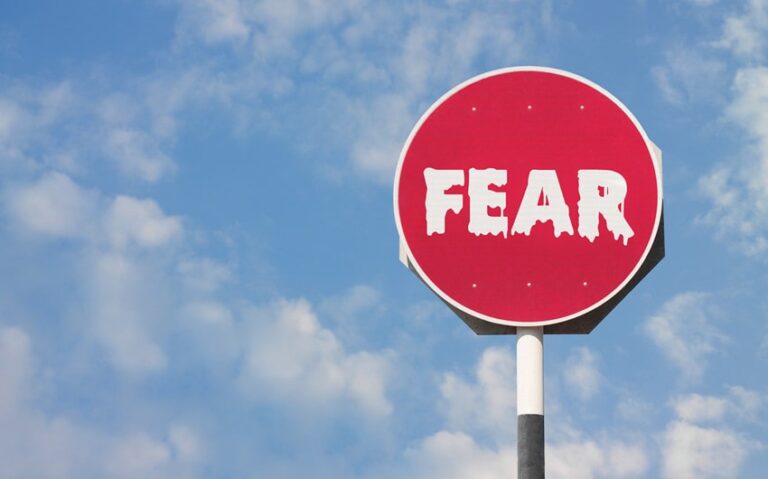47 Fascinating Political Party Names You Should Know Globally
Political parties shape the direction of nations, and their names often reflect their core beliefs and values. From conservative to progressive, these parties influence policies, governance, and the future of their countries. Understanding political party names from around the world offers insight into how different cultures and governments operate.
Whether it’s a well-established party or a newer movement, each name carries significance and tells a story about the party’s goals and identity. Let’s take a look at some of the most well-known and influential political parties globally.
Political Parties in the United States

The United States has a long history of political parties that reflect its diverse ideological spectrum. While the two dominant parties are the Democratic Party and the Republican Party, the political landscape also includes smaller, influential parties that focus on niche issues such as environmentalism, libertarianism, and social justice. Below is a deeper look at these major and minor political parties in the U.S.
1. Democratic Party
Founded in 1828, the Democratic Party is one of the oldest political parties in the world. Historically, it has evolved from supporting states’ rights and segregation to being the leading progressive party in the U.S.
Today, the Democratic Party champions policies focused on social justice, equal rights, economic reform, and environmental protection. It supports a mixed economy with government intervention to ensure social welfare programs such as healthcare and education. The party’s voter base includes urban residents, younger people, and minority groups.
Key Issues:
- Expanding access to healthcare
- Climate change and environmental protection
- LGBTQ+ rights
- Income inequality and workers’ rights
- Gun control
2. Republican Party
Established in 1854, the Republican Party was founded on anti-slavery principles, but it has since shifted toward advocating for free-market capitalism, limited government, and traditional family values.
Today, the party is known for its conservative stances on economic, social, and national security issues. Republicans typically favor lower taxes, reduced government spending, and deregulation, with a strong emphasis on individual liberties. The party’s voter base includes rural areas, religious conservatives, and older Americans.
Key Issues:
- Tax cuts and economic deregulation
- Strong national defense
- Opposition to abortion and same-sex marriage
- Gun rights and the Second Amendment
- Immigration control
3. Green Party
The Green Party in the U.S. is a progressive political party that focuses on environmentalism, social justice, and non-violence. While it is a minor party in terms of electoral success, it has a loyal base of voters who prioritize ecological sustainability, economic justice, and grassroots democracy. Founded in the 1980s, the Green Party seeks to challenge the two-party system and offer an alternative platform for voters dissatisfied with both major parties.
Key Issues:
- Climate action and renewable energy
- Anti-war and non-violence
- Healthcare as a human right
- Economic justice and wealth redistribution
- Reforming the political system to include more diverse voices
4. Libertarian Party
Founded in 1971, the Libertarian Party promotes civil liberties, non-interventionism, and free-market capitalism. It is the largest third party in the United States by membership and electoral participation. Libertarians advocate for minimal government involvement in both economic and personal matters, emphasizing individual freedom and personal responsibility.
Their platform includes reducing taxes, ending the war on drugs, and protecting privacy rights. Libertarians often attract voters who feel alienated by the government interventionist policies of both major parties.
Key Issues:
- Limited government and low taxation
- Free markets and individual economic freedom
- Decriminalization of drugs and criminal justice reform
- Opposition to foreign military intervention
- Gun rights and civil liberties
5. Constitution Party
The Constitution Party is a far-right political party in the United States that advocates for a return to the principles of the U.S. Constitution as envisioned by the Founding Fathers. Founded in 1992, the party promotes conservative positions on social issues, a strict interpretation of the Constitution, and limited federal government intervention. The party’s platform is grounded in Christian values, and it appeals to religious conservatives and strict constitutionalists.
Key Issues:
- Anti-abortion and pro-family values
- Stronger state rights and reduced federal government
- Anti-immigration policies
- Opposition to federal taxation beyond basic needs
- Defending religious liberties
Political Parties in the United Kingdom

The United Kingdom has a rich and varied political history, with political parties that represent a broad spectrum of ideologies and regional interests. While the Conservative and Labour parties dominate the political landscape, smaller parties play a significant role, especially in devolved governments in Scotland, Wales, and Northern Ireland. Here’s a look at the major political parties in the UK.
1. Conservative Party
The Conservative Party, often referred to as the Tories, was founded in 1834 and is the oldest active political party in the UK. It is a center-right party that traditionally supports free-market policies, fiscal conservatism, and strong national defense. The party is known for advocating individual responsibility, economic liberalism, and maintaining traditional institutions. Its base includes rural voters, older individuals, and business communities.
Key Issues:
- Lower taxes and reducing public spending
- Support for Brexit and national sovereignty
- Strong national defense and law enforcement
- Conservative social policies, including opposition to expansive welfare
- Privatization of public services and promotion of private enterprise
2. Labour Party
Founded in 1900, the Labour Party represents the center-left in British politics and has historically been associated with trade unions and the working class. Labour advocates for social equality, public welfare programs, and workers’ rights. Over time, the party has evolved from a purely socialist platform to a more social-democratic stance, particularly during the leadership of figures like Tony Blair. Its voter base includes urban populations, younger voters, and trade union members.
Key Issues:
- Expansion of public services, including the NHS and education
- Social equality and fighting poverty
- Workers’ rights and support for trade unions
- Climate action and green energy
- Progressive taxation to support social welfare programs
3. Liberal Democrats
The Liberal Democrats, formed in 1988 through the merger of the Liberal Party and the Social Democratic Party, is a centrist political party. It champions civil liberties, electoral reform, and social liberalism. The party has consistently advocated for the UK’s membership in the European Union and supports a more inclusive, multicultural society. It is often seen as a middle ground between the Labour and Conservative parties, appealing to voters who are dissatisfied with the two-party system.
Key Issues:
- Electoral reform, including support for proportional representation
- Protection of civil liberties and privacy rights
- Strong environmental policies and renewable energy
- Support for a closer relationship with Europe
- Greater investment in public services like education and healthcare
4. Scottish National Party (SNP)
The Scottish National Party, founded in 1934, is a center-left political party that primarily advocates for Scottish independence from the United Kingdom. It holds significant influence in Scotland and has formed the devolved government there since 2007. While the SNP supports progressive policies, such as expanded welfare and public services, its core platform is focused on achieving independence for Scotland. The party is particularly popular among Scottish voters who wish to see greater autonomy for their country.
Key Issues:
- Scottish independence and self-determination
- Stronger social welfare policies and protection of the NHS
- Progressive taxation and wealth redistribution
- Renewable energy and action on climate change
- Anti-nuclear policies, particularly opposition to Trident, the UK’s nuclear program
5. Green Party of England and Wales
The Green Party of England and Wales focuses primarily on environmental sustainability, social justice, and grassroots democracy. Although it is a minor party in terms of parliamentary seats, it has a growing base of supporters who prioritize climate action and social equity. The Green Party often works to highlight environmental issues in the political arena, pushing for greater action on climate change and advocating for a more sustainable economy.
Key Issues:
- Aggressive action on climate change and promoting renewable energy
- Social justice and reduction of income inequality
- Protecting biodiversity and conservation efforts
- Transitioning to a green economy with sustainable jobs
- Promoting grassroots democracy and electoral reform
6. Plaid Cymru
Plaid Cymru, founded in 1925, is a center-left political party that advocates for Welsh independence and the promotion of Welsh culture and language. It holds a strong presence in the Welsh Parliament (Senedd) and campaigns for greater autonomy for Wales within the UK. Plaid Cymru also supports progressive policies, including social welfare, environmental sustainability, and educational reform.
Key Issues:
- Welsh independence and self-governance
- Promotion of the Welsh language and culture
- Environmental sustainability and renewable energy
- Expansion of public services and protection of the NHS
- Educational reform and equal access to resources
7. Democratic Unionist Party (DUP)
The Democratic Unionist Party is a right-wing political party in Northern Ireland that supports the continued union of Northern Ireland with the UK. Founded in 1971 by Ian Paisley, the DUP has strong conservative stances, particularly on social issues such as abortion and same-sex marriage. The party is also skeptical of European integration and has been a strong advocate for Brexit. Its voter base is largely composed of Protestant unionists in Northern Ireland.
Key Issues:
- Unionism and opposition to a united Ireland
- Conservative social values, including opposition to abortion and same-sex marriage
- Support for Brexit and opposition to the EU
- Strengthening Northern Ireland’s economy
- Strong law and order policies
8. Sinn Féin
Sinn Féin is a left-wing party that operates in both Northern Ireland and the Republic of Ireland, advocating for Irish reunification. In Northern Ireland, it plays a significant role in the government and has historically been associated with the Irish republican movement. Sinn Féin supports progressive policies on social issues and is known for advocating for a united Ireland.
Key Issues:
- Irish reunification and independence from the UK
- Progressive social policies, including support for LGBTQ+ rights and abortion access
- Economic justice and redistribution of wealth
- Peace-building and reconciliation in Northern Ireland
- Strong opposition to Brexit, favoring closer ties with the EU
Political Parties in Germany

Germany’s political landscape is characterized by a diverse array of parties, each representing different segments of society. The country’s multiparty system allows for a wide range of political ideologies, from center-right conservatism to environmentalism and socialism. Germany’s proportional representation system ensures that smaller parties have a significant influence in governance, often forming coalitions with larger parties. Below is an overview of the most prominent political parties in Germany.
1. Christian Democratic Union (CDU)
Founded in 1945, the Christian Democratic Union (CDU) is a center-right political party that has been one of the leading forces in post-World War II German politics. It supports a social market economy, which combines a free-market system with strong social welfare programs. The CDU is known for its conservative stances on family values and national security while being more centrist on issues like immigration and European integration. It often forms coalitions with its Bavarian counterpart, the Christian Social Union (CSU).
Key Issues:
- Economic liberalism and support for the social market economy
- Strong European Union integration
- National security and a robust defense policy
- Conservative social policies, particularly in family and education
- Climate change policies that balance sustainability with economic growth
2. Social Democratic Party of Germany (SPD)
The Social Democratic Party of Germany (SPD) is the oldest political party in Germany, founded in 1863. It represents the center-left and traditionally draws support from working-class voters and trade unions. The SPD has played a key role in shaping Germany’s welfare state, advocating for workers’ rights, social justice, and progressive taxation. Over the years, the SPD has moved toward the center on economic policies while maintaining its commitment to social equity and public welfare.
Key Issues:
- Expanding social welfare programs, including healthcare and education
- Workers’ rights and labor protections
- Progressive taxation to reduce income inequality
- Climate action and support for green energy
- Strengthening the European Union and promoting international cooperation
3. Alliance 90/The Greens
Alliance 90/The Greens is a political party founded in 1993 following the merger of West Germany’s Green Party and East Germany’s Alliance 90. The party is known for its commitment to environmentalism, human rights, and social justice.
The Greens have gained increasing influence in German politics, particularly as climate change has become a more pressing issue. They advocate for a transition to renewable energy, social equality, and grassroots democracy. The Greens are a significant force in German coalitions, often partnering with the SPD or CDU in government.
Key Issues:
- Aggressive climate action and renewable energy transition
- Social justice and reduction of income inequality
- Opposition to nuclear energy and fossil fuels
- Human rights and gender equality
- Strengthening the European Union and global cooperation on climate issues
4. Free Democratic Party (FDP)
The Free Democratic Party (FDP) is a liberal party that advocates for free-market capitalism, individual liberties, and limited government intervention in the economy. Founded in 1948, the FDP is a pro-business party that champions entrepreneurship, economic freedom, and innovation.
While it supports progressive social policies, its primary focus is on economic liberalism and reducing state involvement in the private sector. The FDP is often seen as a kingmaker in German politics, forming coalitions with both the CDU and SPD depending on the political landscape.
Key Issues:
- Free-market policies and deregulation
- Tax cuts and reducing government spending
- Individual freedoms and civil liberties
- Support for digitalization and technological innovation
- Pro-European Union policies with a focus on economic cooperation
5. Alternative for Germany (AfD)
The Alternative for Germany (AfD) was founded in 2013 as a Eurosceptic party opposing the European Union’s handling of the financial crisis. Over time, it has shifted to the far-right, focusing on immigration control, nationalism, and opposition to political correctness.
The AfD is known for its anti-immigration rhetoric, criticism of the EU, and opposition to climate policies like Germany’s energy transition. Although it is a controversial party, it has garnered significant support in some regions, particularly in the former East Germany.
Key Issues:
- Strict immigration control and opposition to asylum policies
- National sovereignty and Euroscepticism
- Opposition to Germany’s energy transition and climate policies
- Anti-Islam and anti-immigration rhetoric
- Criticism of political elites and the mainstream media
6. The Left (Die Linke)
Die Linke was formed in 2007 through the merger of the Party of Democratic Socialism (PDS) and a group of SPD dissidents. It is a far-left political party advocating for democratic socialism, wealth redistribution, and opposition to neoliberal economic policies. The party has strong roots in East Germany, where it has a solid voter base. Die Linke pushes for an expanded welfare state, higher taxes on the wealthy, and greater government involvement in the economy to protect workers and the underprivileged.
Key Issues:
- Wealth redistribution and progressive taxation
- Expansion of social welfare programs
- Workers’ rights and opposition to privatization
- Anti-NATO and non-interventionist foreign policies
- Opposition to militarization and foreign military engagements
7. Christian Social Union (CSU)
The Christian Social Union (CSU) is a conservative political party that operates only in Bavaria. It is the sister party of the CDU and often forms a coalition with the CDU at the national level. While the CSU shares many of the CDU’s policies, it tends to be more conservative, particularly on social issues like immigration and family values. The CSU has been a dominant force in Bavarian politics for decades and represents a key player in Germany’s political landscape.
Key Issues:
- Strong support for Bavaria’s regional identity and autonomy
- Conservative stances on immigration and integration
- Support for traditional family values
- Economic liberalism combined with social market policies
- Strong advocacy for law and order
8. Free Voters (Freie Wähler)
The Free Voters is a centrist political movement that focuses on local governance, regionalism, and pragmatism. The party emphasizes citizen participation in local decisions, regional economic development, and transparent governance. While the Free Voters hold a small presence at the national level, they have gained influence in local elections and regional parliaments, particularly in Bavaria, where they formed a coalition government with the CSU.
Key Issues:
- Local governance and citizen participation
- Regional economic development
- Transparency and anti-corruption measures
- Educational reform and vocational training
- Environmental protection with a focus on local initiatives
Political Parties in France

France has a vibrant political landscape with a wide range of parties representing diverse ideologies, from far-right nationalism to far-left socialism. The French political system operates under a semi-presidential republic, which allows for both strong executive power and significant influence from a multi-party parliament. France’s political parties have been shaped by its revolutionary history, and many continue to emphasize values of liberty, equality, and fraternity. Here’s an in-depth look at the major political parties in France.
1. La République En Marche! (LREM)
La République En Marche! (LREM) was founded in 2016 by Emmanuel Macron, who would go on to win the French presidency in 2017. LREM is a centrist, pro-European Union party that aims to bridge the gap between traditional left and right politics.
The party promotes economic reform, social liberalism, and modernization of the French economy. LREM’s rapid rise to power reflects a broader desire for change and the rejection of established parties, but it faces challenges in maintaining long-term political dominance.
Key Issues:
- Pro-European Union and further EU integration
- Economic reforms, including labor market flexibility and tax cuts
- Modernization of public services and reducing bureaucracy
- Promoting environmental sustainability and renewable energy
- Centrist policies on immigration and social welfare
2. The Republicans (Les Républicains)
Founded in 2002 as a successor to the Rally for the Republic (RPR), The Republicans is France’s primary center-right political party. It supports free-market economic policies, traditional family values, and a strong national defense. The Republicans have been a dominant force in French politics, with notable leaders like Nicolas Sarkozy serving as president. While the party is rooted in Gaullist traditions, it faces challenges from both the far-right National Rally and the centrist LREM.
Key Issues:
- Economic liberalism, including tax cuts and deregulation
- Conservative social values, such as opposition to same-sex marriage and family policy reform
- Strong national security and counter-terrorism measures
- Anti-immigration policies and opposition to expanding asylum rights
- Support for a strong European Union, though with more national sovereignty
3. Socialist Party (Parti Socialiste)
The Socialist Party is one of France’s most historically influential left-wing political parties, although its influence has waned in recent years. Founded in 1969, it has its roots in the labor movement and French socialism. The party advocates for wealth redistribution, strong social welfare programs, and workers’ rights. Under President François Hollande, the Socialist Party held power from 2012 to 2017 but has since struggled with internal divisions and declining support due to economic and political challenges.
Key Issues:
- Social welfare expansion, including healthcare, education, and housing
- Progressive taxation to reduce income inequality
- Workers’ rights and support for trade unions
- Renewable energy and climate action
- Pro-European Union but with a focus on social protections within the EU framework
4. National Rally (Rassemblement National)
Formerly known as the National Front, the National Rally (RN) was founded in 1972 by Jean-Marie Le Pen and later led by his daughter, Marine Le Pen. The RN is a far-right nationalist party known for its anti-immigration, anti-EU, and populist policies. The party emphasizes national sovereignty, cultural preservation, and a tough stance on law and order. Marine Le Pen has worked to moderate the party’s image, gaining significant electoral support in recent years, though it remains a controversial force in French politics.
Key Issues:
- Anti-immigration and opposition to multiculturalism
- Euroscepticism, advocating for reduced EU influence over French policy
- National sovereignty and protectionism
- Law and order, with strict policies on crime and terrorism
- Support for traditional French values and opposition to globalism
5. La France Insoumise (LFI)
La France Insoumise (LFI) is a left-wing populist party founded in 2016 by Jean-Luc Mélenchon. It advocates for a radical overhaul of the French political and economic system, aiming for a Sixth Republic to replace the current Fifth Republic. LFI promotes democratic socialism, environmental justice, and a shift away from neoliberal economics. It is critical of the European Union, particularly its economic policies, and calls for a new French economic and social model that emphasizes public ownership and social equality.
Key Issues:
- Radical wealth redistribution and progressive taxation
- Expansion of public services, including healthcare and education
- Transition to a green economy with strong environmental protections
- Opposition to the European Union’s austerity policies
- Creation of a new constitution to form a Sixth Republic
6. Democratic Movement (MoDem)
Founded in 2007 by François Bayrou, the Democratic Movement (MoDem) is a centrist political party that often supports LREM in French politics. MoDem advocates for moderate policies, emphasizing pro-European values, environmental sustainability, and social justice.
The party seeks to promote a balanced approach between economic reform and social protections, positioning itself as a middle ground between the left and right. MoDem plays a significant role in coalition governments, particularly under Emmanuel Macron’s presidency.
Key Issues:
- Pro-European Union and support for greater EU integration
- Moderate economic reforms with a focus on social equity
- Environmental protection and promotion of renewable energy
- Strong support for public education and healthcare
- Electoral reform and promotion of direct democracy
7. Europe Ecology – The Greens (EELV)
Europe Ecology – The Greens (EELV) is France’s leading environmentalist party. Formed in 2010 through the merger of several smaller green movements, the party emphasizes strong action on climate change, environmental sustainability, and social justice.
While it has struggled to achieve major electoral victories on its own, EELV has seen increasing support in recent years as climate issues have become more prominent. The party is often involved in coalitions with left-wing parties, particularly the Socialist Party.
Key Issues:
- Aggressive action on climate change, including reducing carbon emissions and promoting renewable energy
- Preservation of biodiversity and conservation efforts
- Transition to a green economy with sustainable job creation
- Social justice and reducing income inequality
- Support for a strong European Union with a focus on environmental policies
8. The Republicans of the Left (Les Républicains de Gauche)
This is a minor left-leaning political party in France that focuses on socialist values, though it has little representation in modern French politics. Historically, it has aligned with labor movements and promoted workers’ rights, but its influence has declined as other left-wing parties have gained prominence. Though not a major player, it serves as an example of the breadth of political diversity in France.
Key Issues:
- Promotion of socialist and workers’ rights policies
- Support for public ownership of major industries
- Advocacy for social justice and wealth redistribution
- Commitment to democratic socialism
- Environmental protections aligned with economic justice
Political Parties in India

India has a vibrant and diverse political landscape, with parties representing various ideologies, castes, religions, and regional interests. As the world’s largest democracy, India operates under a multi-party system, and its political parties range from national to regional players. The country’s political history is deeply shaped by its struggle for independence and the subsequent need to balance economic development with social justice. Here’s a detailed look at the major political parties in India.
1. Bharatiya Janata Party (BJP)
The Bharatiya Janata Party (BJP) is one of the two major national parties in India and has its roots in the nationalist movement. Founded in 1980, it is a right-wing party that promotes Hindu nationalism and economic reforms aimed at modernizing India.
The BJP supports free-market policies, emphasizing economic liberalism, infrastructure development, and industrial growth. Its ideology is rooted in Hindutva, which advocates for the cultural and religious identity of Hindus. Under the leadership of Prime Minister Narendra Modi, the BJP has seen widespread electoral success, making it the dominant political force in India.
Key Issues:
- Hindu nationalism and promotion of Hindu cultural values
- Economic reforms focused on privatization, infrastructure, and development
- National security, with a focus on defense and counter-terrorism
- Anti-corruption measures and promoting transparency in governance
- Strong stance on issues such as Kashmir, border security, and national sovereignty
2. Indian National Congress (INC)
The Indian National Congress (INC) is the oldest political party in India, founded in 1885. It played a crucial role in India’s struggle for independence under the leadership of figures like Mahatma Gandhi and Jawaharlal Nehru. Post-independence, the INC governed India for the majority of its early years. It is a center-left party that advocates for secularism, social justice, and inclusive economic development.
The Congress Party supports policies aimed at reducing poverty, expanding education, and protecting minority rights. Despite its historic influence, the INC has struggled in recent elections, losing ground to the BJP.
Key Issues:
- Social justice and poverty alleviation programs
- Secularism and protection of minority rights
- Expanding healthcare and education
- Economic development with a focus on inclusive growth
- Strengthening India’s position in international diplomacy and fostering peaceful relations
3. Aam Aadmi Party (AAP)
The Aam Aadmi Party (AAP) was founded in 2012 by Arvind Kejriwal, emerging from the India Against Corruption movement. It is a relatively new party that focuses on transparency, anti-corruption measures, and governance reform.
AAP has positioned itself as a party for the common man, with a strong focus on improving public services such as education, healthcare, and sanitation. It has seen significant success in the Delhi state elections, where Kejriwal has served multiple terms as Chief Minister. AAP aims to challenge the established political order, offering an alternative to both the BJP and the INC.
Key Issues:
- Anti-corruption measures and governance transparency
- Improving public education and healthcare systems
- Affordable access to essential services, such as water and electricity
- Decentralization of power and citizen participation in governance
- Clean governance, with a focus on eradicating bureaucratic corruption
4. Communist Party of India (Marxist) – CPI(M)
The Communist Party of India (Marxist), commonly referred to as CPI(M), was formed in 1964 after splitting from the Communist Party of India. It is a far-left political party that advocates for a Marxist-Leninist approach to governance.
The CPI(M) supports policies aimed at wealth redistribution, workers’ rights, and public ownership of key industries. It has a strong base in the states of Kerala, West Bengal, and Tripura, where it has governed for extended periods. Although its influence has waned in national politics, CPI(M) remains a significant force in regional politics.
Key Issues:
- Wealth redistribution and progressive taxation
- Public ownership of key industries and resources
- Workers’ rights and promotion of trade unions
- Opposition to neoliberal economic policies
- Land reforms and protections for farmers and agricultural workers
5. Bahujan Samaj Party (BSP)
Founded in 1984 by Kanshi Ram, the Bahujan Samaj Party (BSP) represents the interests of the marginalized communities in India, particularly Dalits (formerly known as “untouchables”), Other Backward Classes (OBCs), and religious minorities. The party focuses on social justice, promoting equality, and ending caste-based discrimination.
BSP’s main base of support is in the northern state of Uttar Pradesh, where it has wielded significant political power. Under the leadership of Mayawati, BSP has positioned itself as a defender of the rights of the oppressed, advocating for a more inclusive society.
Key Issues:
- Eradication of caste-based discrimination and promoting Dalit rights
- Social justice and economic upliftment of marginalized communities
- Redistribution of land and resources to the underprivileged
- Affirmative action in education and employment
- Opposition to upper-caste dominance in politics and society
6. Shiv Sena
The Shiv Sena was founded in 1966 by Bal Thackeray as a regional political party in Maharashtra. Originally created to advocate for the rights of Marathi-speaking people in Maharashtra, the party has since evolved into a right-wing nationalist party with strong ties to Hindutva. Shiv Sena supports policies that promote Hindu culture and oppose immigration from other Indian states into Maharashtra.
While it has traditionally been a BJP ally in national politics, Shiv Sena broke away from the BJP to form a coalition government in Maharashtra in 2019, aligning with ideologically diverse parties.
Key Issues:
- Promotion of Marathi identity and rights of local people in Maharashtra
- Hindu nationalism and support for Hindutva
- Opposition to illegal immigration, particularly from neighboring regions
- Urban development and infrastructure in Maharashtra, particularly Mumbai
- Advocacy for the rights of farmers and rural communities
7. Trinamool Congress (TMC)
The All India Trinamool Congress (TMC) was founded in 1998 by Mamata Banerjee after splitting from the Indian National Congress. TMC is a regional party with a strong presence in the state of West Bengal, where Banerjee has served multiple terms as Chief Minister.
The party is center-left and promotes secularism, social justice, and regional autonomy. TMC has positioned itself as a key opponent to the BJP in West Bengal, winning significant electoral victories in recent state elections. It also advocates for better federalism and more power for state governments.
Key Issues:
- Regional autonomy and greater power for state governments
- Social justice and economic development in rural areas
- Secularism and protection of minority rights
- Opposition to BJP’s centralization of power and religious nationalism
- Infrastructure development and public service improvement in West Bengal
8. Nationalist Congress Party (NCP)
Founded in 1999 by Sharad Pawar after a split from the Indian National Congress, the Nationalist Congress Party (NCP) is a center-left party that focuses on secularism, democracy, and social justice. NCP has a strong base in Maharashtra and has frequently been a coalition partner with other parties, including the Indian National Congress, in both state and national elections. The party promotes inclusive development, with a focus on farmers’ rights and rural development.
Key Issues:
- Secularism and promotion of religious harmony
- Farmers’ rights and agricultural development
- Social justice and support for marginalized communities
- Decentralization and more power for state governments
- Economic development through investment in infrastructure
9. Dravida Munnetra Kazhagam (DMK)
The Dravida Munnetra Kazhagam (DMK) is a regional political party based in Tamil Nadu. Founded in 1949 by C. N. Annadurai, it is a Dravidian party that advocates for the rights of Tamil people and opposes the imposition of Hindi and northern cultural dominance. DMK supports social justice, anti-caste policies, and regional autonomy. The party has been a dominant force in Tamil Nadu politics for decades and often alternates in power with its main rival, the All India Anna Dravida Munnetra Kazhagam (AIADMK).
Key Issues:
- Tamil identity and opposition to the imposition of Hindi
- Social justice and promotion of caste-based reservation policies
- Regional autonomy and federalism
- Secularism and protection of minority rights
- Economic development with a focus on industrialization and welfare programs
Political Parties in Australia

Australia operates under a federal system with a representative democracy, and its political landscape is dominated by a few major parties, with several smaller parties playing influential roles. The two-party system, consisting of the Australian Labor Party and the Liberal-National Coalition, has traditionally governed Australia, but minor parties and independents often hold balance-of-power positions, especially in the Senate.
Australia’s political parties represent a range of ideologies, from center-right conservatism to progressive environmentalism. Here’s a look at the major political parties in Australia.
1. Liberal Party of Australia
The Liberal Party of Australia, founded in 1944 by Robert Menzies, is a center-right political party that champions free markets, individual liberties, and economic liberalism. The party traditionally supports small government, low taxation, and deregulation, promoting policies that favor business growth and individual entrepreneurship.
The Liberal Party forms a long-standing coalition with the National Party to win elections, collectively known as the Liberal-National Coalition. The party’s voter base is generally composed of urban professionals, business owners, and people in rural and regional areas.
Key Issues:
- Free-market economics and promoting private enterprise
- Lower taxes and reduced government spending
- Strong national defense and immigration control
- Conservative social policies, including support for traditional family values
- Support for international trade and foreign investment
2. Australian Labor Party (ALP)
The Australian Labor Party (ALP), founded in 1901, is one of the oldest political parties in Australia and represents the center-left. Historically linked to trade unions and the working class, the ALP advocates for social justice, workers’ rights, and public services such as healthcare and education. It promotes a mixed economy, balancing market freedom with government intervention to ensure social equity.
Labor’s voter base is diverse, including urban workers, professionals, and individuals who prioritize social welfare and progressive policies.
Key Issues:
- Expanding social welfare programs, including healthcare and education
- Workers’ rights and support for labor unions
- Progressive taxation and redistribution of wealth
- Action on climate change and renewable energy transition
- Support for immigration and multiculturalism
3. National Party of Australia
The National Party of Australia, founded in 1920 as the Country Party, represents rural and regional interests. Traditionally aligned with the Liberal Party, it forms part of the Liberal-National Coalition, serving as the voice of farmers, regional businesses, and rural communities.
The Nationals advocate for policies that support agricultural industries, rural infrastructure, and decentralization. While conservative on social issues, the party focuses heavily on ensuring that rural Australia receives adequate attention in national policy decisions.
Key Issues:
- Support for agriculture and rural businesses
- Rural infrastructure development, including roads and telecommunications
- Conservative social values, including opposition to same-sex marriage and abortion
- Advocacy for water rights and environmental sustainability in farming
- Tax relief and subsidies for rural communities
4. Australian Greens
The Australian Greens are a progressive, environmentalist party founded in 1992. The party has steadily grown in influence, especially in urban areas, and is known for its strong stance on climate change, environmental sustainability, and social justice.
The Greens advocate for transitioning to renewable energy, reducing carbon emissions, and protecting biodiversity. They also promote progressive social policies such as LGBTQ+ rights, refugees’ rights, and reducing income inequality. The Greens have an active role in both federal and state politics, often working to influence legislation through their presence in the Senate.
Key Issues:
- Aggressive action on climate change and renewable energy transition
- Protection of biodiversity and opposition to mining and deforestation
- Social justice, including support for refugees and asylum seekers
- Advocacy for LGBTQ+ rights and gender equality
- Wealth redistribution and economic reform to reduce inequality
5. Pauline Hanson’s One Nation
Founded in 1997 by Pauline Hanson, One Nation is a far-right nationalist party that focuses on immigration control, national sovereignty, and opposition to multiculturalism. The party is known for its populist rhetoric, particularly against immigration and Islam, as well as its criticism of Australia’s political elite.
One Nation appeals to a base of disaffected voters, particularly in regional areas, who feel left behind by mainstream politics. While its influence has fluctuated over the years, One Nation continues to play a significant role in shaping national debates on immigration and identity.
Key Issues:
- Strict immigration control and opposition to multiculturalism
- National sovereignty and resistance to foreign influence, particularly from China
- Populist economic policies, including protectionism and anti-globalization
- Opposition to environmental policies that are seen as harmful to industry
- Advocacy for free speech and opposition to political correctness
6. Centre Alliance
The Centre Alliance, formerly known as the Nick Xenophon Team (NXT), is a centrist political party that operates mainly in South Australia. It focuses on economic reform, government transparency, and accountability. The party often advocates for pragmatic solutions rather than ideological positions, seeking to improve the lives of everyday Australians. While it has a smaller national footprint, the Centre Alliance has been influential in the Senate, where its members have played a key role in negotiations on economic and energy policies.
Key Issues:
- Government transparency and reducing corruption
- Support for manufacturing and regional development
- Economic reform aimed at reducing inequality and supporting small businesses
- Energy policy focused on lowering costs and increasing sustainability
- Political accountability and electoral reform
7. United Australia Party (UAP)
The United Australia Party (UAP) was revived in 2013 by mining magnate Clive Palmer, after originally existing as a major party in the 1930s and 1940s. Palmer’s UAP advocates for economic nationalism, opposing foreign ownership of Australian assets and promoting domestic industry.
The party’s platform often revolves around populist economic policies, and Palmer has used his personal wealth to fund significant advertising campaigns. Though UAP has had limited electoral success, it plays a role in influencing voter sentiment, particularly among those dissatisfied with the two major parties.
Key Issues:
- Economic nationalism and opposition to foreign ownership of Australian industries
- Reducing taxes and government intervention in the economy
- Support for domestic job creation and infrastructure development
- Anti-elite rhetoric, focusing on government transparency and accountability
- Skepticism of environmental regulations seen as harmful to industry
8. Katter’s Australian Party (KAP)
Founded in 2011 by Bob Katter, a former National Party MP, Katter’s Australian Party (KAP) is a right-wing populist party based in Queensland. The party focuses on representing rural and regional interests, advocating for economic protectionism and strong support for agriculture.
KAP also promotes socially conservative values, opposing issues such as same-sex marriage and abortion. The party’s economic platform is heavily focused on protecting Australian industries from foreign competition and ensuring that rural communities receive adequate government support.
Key Issues:
- Economic protectionism and support for Australian agriculture
- Rural development and infrastructure investment
- Opposition to globalization and foreign ownership of Australian assets
- Conservative social policies, including opposition to same-sex marriage
- Advocacy for water rights and resource management in rural areas
9. Jacqui Lambie Network (JLN)
The Jacqui Lambie Network (JLN) was founded in 2014 by independent Senator Jacqui Lambie. Based in Tasmania, the JLN focuses on representing the interests of ordinary Australians, particularly veterans, the working class, and people in regional areas. Lambie is known for her outspoken, populist style and her advocacy for better veterans’ services, regional development, and social justice. The JLN is often considered a centrist party, focusing on pragmatic solutions rather than strict ideological positions.
Key Issues:
- Advocacy for veterans’ rights and welfare
- Regional development and job creation in rural areas
- Support for better healthcare and social services
- Anti-corruption measures and government accountability
- Pragmatic stance on social issues, including affordable housing and education







